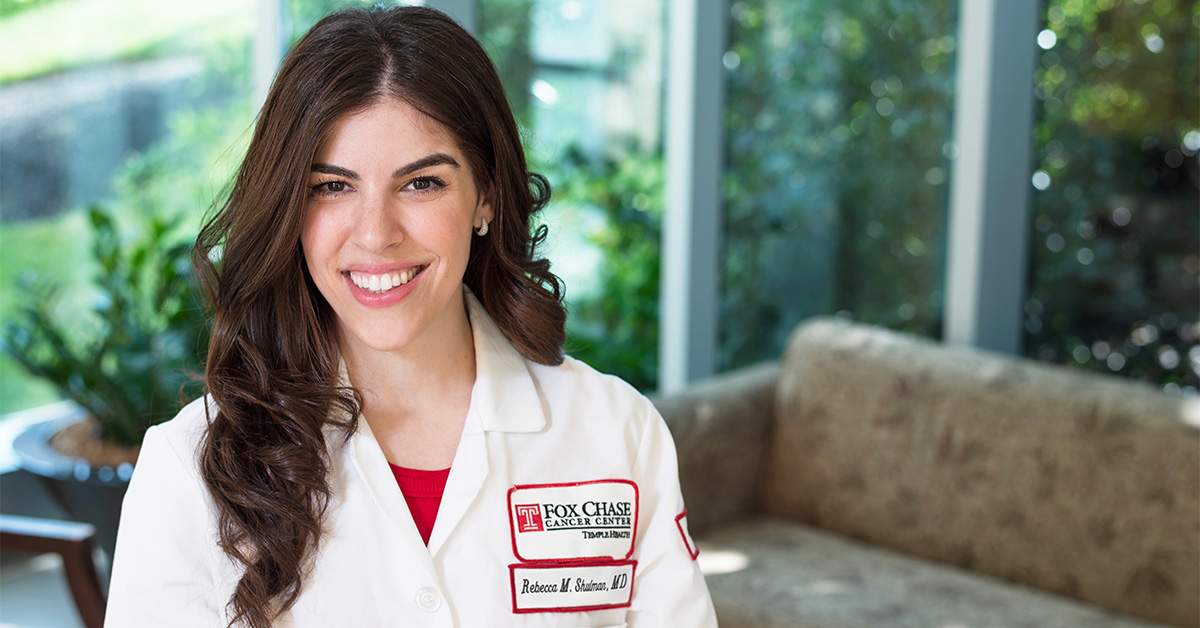
PHILADELPHIA (December 20, 2023) — Rebecca Shulman, MD, an Assistant Professor in the Department of Radiation Oncology at Fox Chase Cancer Center, was recently recognized with the American Society for Radiation Oncology (ASTRO)-Breast Cancer Research Foundation (BCRF) Emerging Investigator Award to Build a Diverse Scientific Workforce.
“This award is particularly meaningful to me as a young investigator,” said Shulman. “It’s very encouraging to have my research enthusiastically supported by major organizations like ASTRO and BCRF.”
The ASTRO-BCRF award is given to an early-career breast radiation oncology researcher and provides $100,000 for a one-year project. One goal of the award is to foster the careers of cancer researchers who are committed to improving healthcare by promoting the participation of ethnic and racial groups historically underrepresented in biomedical research.
Shulman’s project, “Combination Therapy with Radiotherapy, Immune Checkpoint Blockade, and Curaxin Enhances Tumor Regression in Metastatic Triple-Negative Breast Cancer,” is a collaborative undertaking with Siddharth Balachandran, PhD, a Professor in the Cancer Signaling and Microenvironment Research Program at Fox Chase.
The project employs an animal model to investigate the benefits of a previously untested combination of radiation therapy and immunotherapy. Demonstration of therapeutic efficacy in the laboratory setting would provide support for clinical trials investigating similar forms of therapy for patients with metastatic triple-negative breast cancer.
Shulman’s prior research at Fox Chase has included studies of the relation of BRCA1 mutations to tumor radiosensitivity and of the molecular mechanisms that allow cancers to evade tumor-killing agents.
In addition to the support of the ASTRO-BCRF award, her research has been recognized and funded by the Robert A. Winn Diversity in Clinical Trials: Career Development Award, the Conquer Cancer Foundation ASCO Young Investigator Award, the Rita R. Holman Breast Cancer Foundation Annual Research Award, and the LUNGevity Health Equity and Inclusiveness Research Fellow Award, among others.
“This award provides the kind of affirmation that is so essential when you’re in the early phase of your career as an independent clinical researcher,” said Shulman. “Receiving the award is a great honor. More importantly, it is the support of dedicated organizations like ASTRO-BCRF that will lead to the discoveries that improve the lives of patients with metastatic triple-negative breast cancer.”